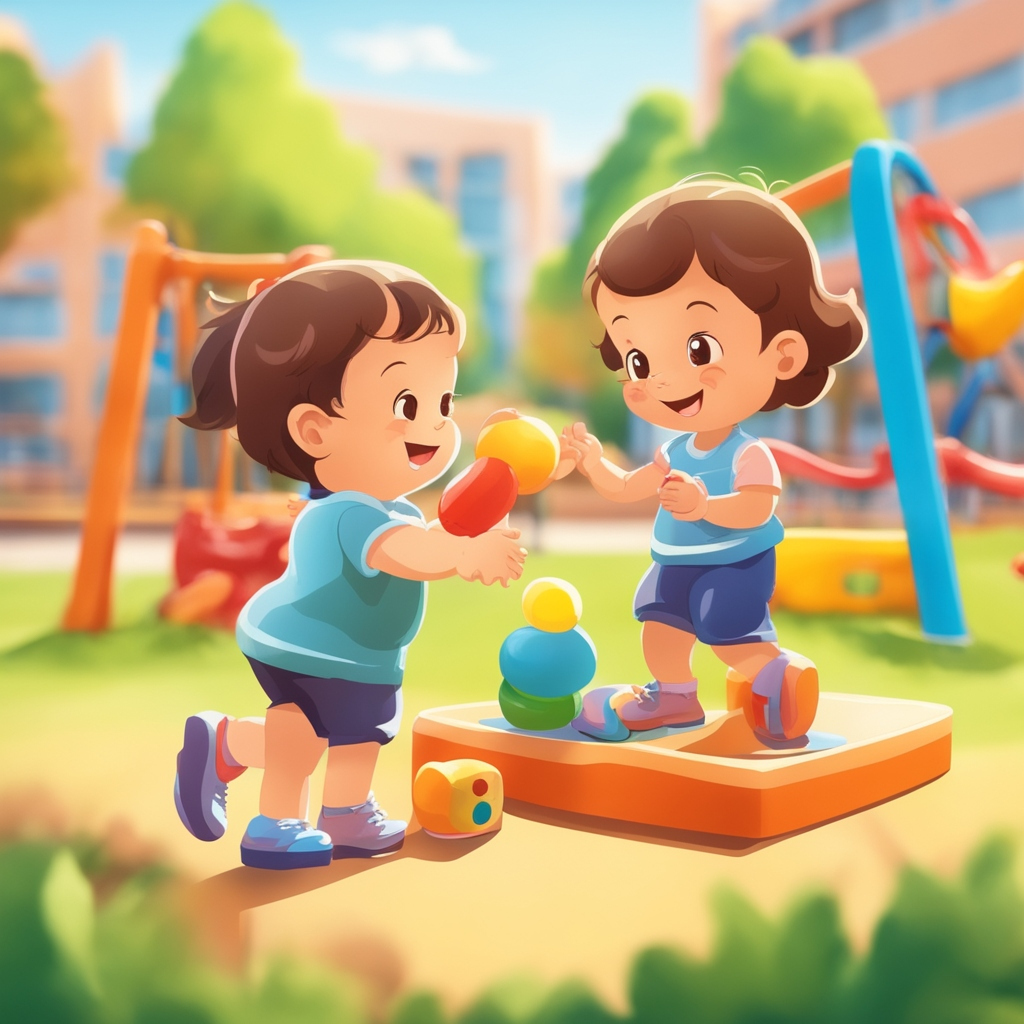Introduction
Learning to share is a critical skill in early childhood development. For toddlers, sharing is not just about giving away a toy; it represents a complex social interaction where they need to consider someone else’s feelings, needs, and perspectives. Teaching your toddler to share involves patience, understanding, and consistent practice. This guide will help you foster this essential skill in your child.
The Importance of Sharing
Sharing is crucial for developing empathy and social skills. As toddlers learn to navigate the world of interaction, they need to understand concepts like fairness and cooperation, which are fundamental for building relationships and functioning in groups. Learning to share prepares them for more structured environments, such as preschool and beyond.
Model Sharing Behavior
Children learn a great deal by observing the adults around them. Demonstrate sharing in everyday situations. For example, share food at the table, or offer to share your space or belongings with other family members. When you model this behavior, narrate what you’re doing in simple terms so your toddler can connect the action with the concept.
Use Play as a Teaching Tool
Toddlers often learn best through play. Use toys and games that encourage turn-taking and sharing. Board games or building sets where children need to work together can be excellent tools. In play scenarios, gently guide your toddler through taking turns and express appreciation and praise when they share with others.

Create Opportunities to Share
Arrange playdates where your child has the chance to share toys with peers. Integrate structured activities where sharing is a part of the game. Make sure to praise your child verbally when they share or take turns, reinforcing positive behavior. This reinforcement helps establish sharing as a rewarding part of play.
Teaching Empathy
Helping your toddler understand the emotions of others is essential in teaching sharing. Simple questions like “How do you think your friend feels when you share your toy?” can prompt your child to consider the feelings of others. Use books and stories where characters share or cooperate to demonstrate these concepts in a relatable context.
Use Routines and Cues
Establish routines that incorporate sharing. For example, during snack time, practice passing plates or containers. Use visual cues and social stories to highlight when and where sharing occurs daily, helping toddlers predict and understand these interactions in various settings.
Acknowledge Individuality
Understand that toddlers are developing their sense of autonomy and ownership. Encourage sharing while respecting your toddler’s need to possess and control their belongings. Designate special toys that your toddler doesn’t have to share, reinforcing that some aspects of individuality are respected.
Consistency is Key
Be consistent in your expectations about sharing. If rules or guidelines are in place, apply them uniformly. Inconsistency can confuse toddlers, making it harder for them to grasp the concept. If a child experiences a conflict over sharing, calmly and consistently address the behavior and reiterate the expectation.
Dealing with Sharing Conflicts
Conflicts over sharing will occur, and it’s important to address them calmly. Separate the children involved to discuss the situation. Help each child articulate their feelings, and guide them toward a resolution. Encourage them to come up with solutions, such as taking turns, and praise them for resolving the conflict themselves.
Encouraging Problem Solving
In situations where sharing is difficult, involve your toddler in problem-solving. Ask simple questions that guide them in finding solutions, like “What if we take turns every five minutes?” or “How about you play with this while your friend plays with that?” This encourages critical thinking and autonomy in resolving sharing issues.
Celebrate Success
Celebrate your child’s efforts in sharing. This can be through verbal praise, a sticker chart, or a special activity to recognize their positive behavior. Celebrating success makes sharing a fun and recognized achievement, boosting your toddler’s self-esteem.
Conclusion
Teaching your toddler to share is an ongoing process that involves patience and consistent effort. By modeling behavior, promoting empathy, and providing opportunities to practice sharing, you help your toddler develop vital social skills that benefit them in the present and future. Remember, progress may be slow, but with time and encouragement, your toddler will learn to share and appreciate the joy that comes with it.